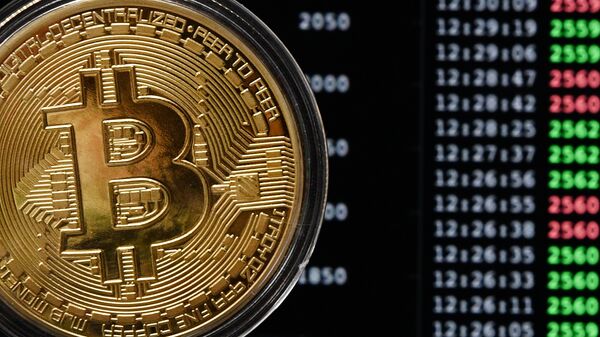Sputnik: How necessary is it to regulate cryptocurrencies and will, in fact, these cryptocurrencies still exist if regulated?
Ronnie Moas: I don't focus too much on regulation because regulation will impact the bottom 95% of the names. If you look at coin market cap right now, for example, there are more than a thousand names there, but 98% of the market cap is concentrated in the top 50 names, and most of those names are legitimate and they don't have anything to worry about on the regulation front. Don't take my words out of context, what I'm trying to say is that, if there are scam artists or people who are acting in an immoral or unethical manner, they will be regulated and it will be hard for them to operate, but that should not affect how people view the entire space where, like I said, 95, 96, 97% of the market valuation for the entire arena is concentrated at the top in a few dozen names.
Sputnik: What kind of regulation is possible here if we're talking about regulating cryptocurrencies?
Ronnie Moas: I focus mainly on Bitcoin because as someone who came from Wall Street, valuation is an issue and it is very difficult to value the names below Bitcoin. The way that I see Bitcoin is as follows: You have right now $200 trillion tied up in stocks, cash, bonds and gold around the world an all four of those are overvalued, if 2% of that $200 trillion ends up in cryptocurrency you would be looking at a $4 trillion evaluation, eight times to where we are today and it would put Bitcoin at $80,000 if it holds on to its current market share.
Now, as far as regulations go, I don't care if some headline comes out of China, or South Korea, or Russia, or the United States, because whatever is dumped by any of these countries, there are a 180 countries around the world that can keep up that supply, the supply on Bitcoin is so limited and the supply-demand imbalance is so mind-boggling it doesn't really matter to me what kind of regulation comes from any one country. What is my fear? That you will have a joint statement coming on the same day from South Korea, China, the United States, Russia and some other countries that could end up causing some panic among those who are invested in those top names in crypto. Does that make sense?
READ MORE: Chinese Police Control Cryptocurrency Exchanges Overseas – Reports
Sputnik: Yes, it does, but what do you see happening then, once that panic has started?
Ronnie Moas: The question people have to ask themselves is as follows, I just gave a conservative forecast on how I see Bitcoin going from $10,000 to $80,000 in the next few years, which means an investor today is looking in getting an eight times return on their investment if they go in today. The problem if you go in today is when you have a lot of outside potential there's also a lot of risk and uncertainty, and if you go in today you have to deal with that threat and those concerns, and those obstacles that have still not got knocked down.
If you want to wait when the coast is clear, guess what, the price of Bitcoin will be at $40,000 and then your upside will only be 100%. So you can't have it both ways, there's a correlation between risk and reward, just like when you go into a biotech stock that is not out of phase one yet, the stock price will be very low but the upside will be very high, because you're taking a lot of risk by going into a drug that has not even passed through the phase one trials, you wait until they pass phase two and phase three and get FDA clearance to get the drugs on the shelf, then the price is already fairly valued and you don't have the upside or the downside that the people who were the first investors in had in front of them when they made their investment.
Sputnik: There's been this frenzy, you get the impression that it's deliberately stoked, but what about statements about the regulation of Bitcoin, could they also result in high popularity of the virtual currency?
There were skeptics with regard to the Amazon stock, for the last 15 years there were people betting against Amazon, and guess what, the share price went from $30 to $1,500, and this was a company that was losing money on every book it was selling up until a few years ago. So this is an opportunity of a lifetime, it could go to zero, people have to understand that, it's a currency that will sink or swim based on consumer confidence. If one of the major exchanges gets hacked, if China, or Russia, or the United States decide to crack down really hard on cryptocurrency, Bitcoin can go down to $1,000 or $2,000.
The views and opinions expressed by Ronnie Moas are those of the speaker and do not necessarily reflect those of Sputnik.


